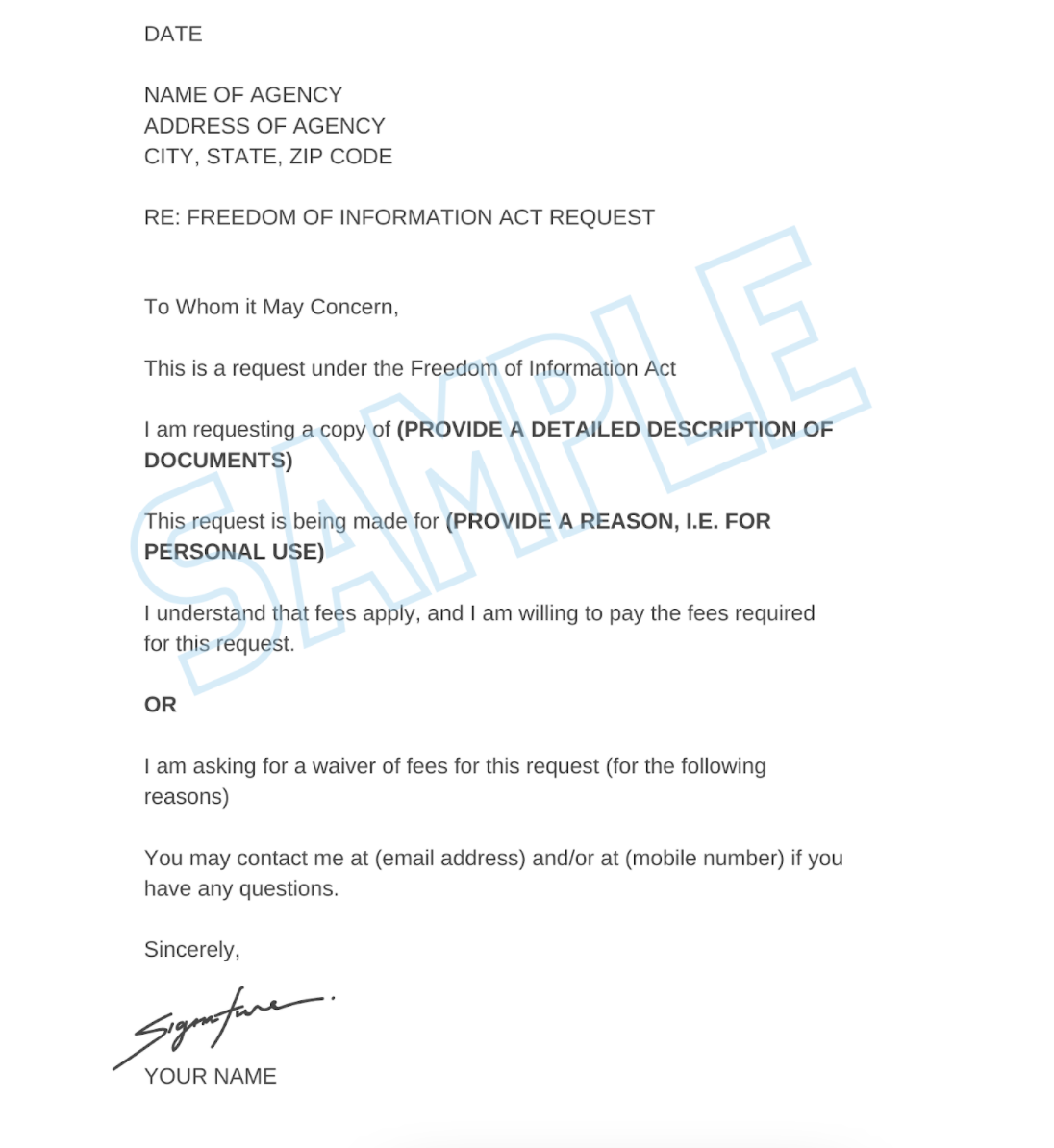Don’t underestimate the power of your right to get government records under the Freedom of Information Act (FOIA).
But what does that mean for a citizen detective? Where are the resources, and how do you get started?

FOIA at work in recent years
Without the FOIA, Americans may have remained unaware of some fairly incriminating revelations in recent, including the following:
- The Big Cheese Reveal: An FOIA request revealed that the Food and Drug Administration had conducted a 2012 investigative report on Castle, a cheese manufacturer, and found that their Parmesan cheese contained zero Parmesan cheese and wood pulp as filler.
- Medicare Overcharges: Under an FOIA lawsuit made by the Center for Public Integrity in 2015, government audits had found that private insurers running Medicare Advantage plans had been overcharging for patients for years.
- Lead in Flint’s Water: One of the most publicized FOIA-related cases involved the state of Michigan’s decision not to add corrosion controls to the water supply in Flint. The American Civil Liberty Union requested reports under the act, which revealed extensive lead contamination in the city’s water supply as a result of that decision. The FOIA requests regarding this case — which resulted in severe lead poisoning for many children in Flint—were made in 2015.
Not just for journalists and advocacy groups
When the FOIA celebrated its 50-year anniversary in 2016, media outlets around the nation recognized the act as being instrumental in many of their hard-hitting news stories. Journalists from publications as varied as USAToday, the Seattle Times, and The New York Times shared their personal stories of using FOIA to unveil records of sex abuse, secret surveillance, slow response times to 911 calls, and criminal histories of suspects.
Alan Blinder, a reporter for the New York Times, said he often requests public records after a major breaking news story, as was the case with a mass shooting in Texas. Through records, he found that the alleged gunman had a history of trouble before the attack. “A lot of times you’re using public records to try to fill in details that are hard to find other ways,” Blinder said in a news article for the Times.
How to file an FOIA request
Although journalists typically lead the way in using FOIA reports and, in many cases, filing lawsuits against government officials to get to the information that they’re requesting, the FOIA was enacted with everyday citizens in mind as well.
Take these steps to file an FOIA request.
Do your research. Determine if you really need to make a request. Before you undertake the process of filing an FOIA request, check first to see if you really need to go that route. A lot of information already is available online or in print.
First narrow down the agencies that would likely have the information you’re seeking. If it’s not at the federal level, check the websites of your local government—city, county and state. If you’re still not sure, you can call records departments at those agencies to ask for guidance. Although the FOIA is specifically targeted to the federal government, you can still cite FOIA when requesting records from local government agencies.
You also can check government websites by using the search feature on FOIA.gov and at the Federal Register.
Prepare your FOIA request. If a record can’t be found through other sources, such as public records published online, you have the right to file an FOIA request to get the information you need.
Make sure that you are addressing the right agency for your request to minimize the time it takes for you to get information. Check this listing of federal government agencies for more information.
More than likely, you will be charged a fee for processing the request. However, it’s possible that you are exempt from paying a fee if you can prove that the information you’re seeking is to serve the public interest. If so, you can make that request for a fee waiver by detailing the benefits to the public from receiving the requested information.
If you haven’t written a letter in some time, it’s time to get in some practice. Pull out your computer, typewriter or pen and paper. In most cases, written documentation is required to submit an FOIA request
Here’s a breakdown of what your letter should include:
- Date
- Name and address of agency
- A statement indicating that it is a request under the FOIA
- A summary of the documents you are requesting and why you are requesting them
- Your understanding of the fee required, and your willingness to pay the fee or up to a certain amount OR your request for a fee waiver
- Your contact information for any feedback or to answer questions
Deliver your FOIA request. More than likely, you will need to mail the letter to the appropriate agency. Some also may offer the option of uploading it online. Check to make sure you’re following the proper instructions for delivery.
Receive a receipt of acknowledgment and/or records. In most cases, the agency should provide the records within 20 working days. If you don’t hear back from the agency within that timeframe, it’s time to call to follow up.
Appeal. If for some reason, your request is denied or the records have sections that are redacted, you can file an administrative appeal within 90 days of receiving your response. The agency will have another 20 working days to respond. You also have the right to file a lawsuit to get the information if the reason is not satisfactory.

Deliver your FOIA request. More than likely, you will need to mail the letter to the appropriate agency. Some also may offer the option of uploading it online. Check to make sure you’re following the proper instructions for delivery.
Receive a receipt of acknowledgment and/or records. In most cases, the agency should provide the records within 20 working days. If you don’t hear back from the agency within that timeframe, it’s time to call to follow up.
Appeal. If for some reason, your request is denied or the records have sections that are redacted, you can file an administrative appeal within 90 days of receiving your response. The agency will have another 20 working days to respond. You also have the right to file a lawsuit to get the information if the reason is not satisfactory.
Organizations that can help
The National Freedom of Information Coalition (NFOIC) is a state-wide organization, working with affiliate groups all over the country to share recourses for access to public records. You can access information on public training and seminars, and view an interactive map to find help in your state specifically. Through an ongoing partnership with NFOIC we provide access to detailed training for access to public records via programming. You can access our past Public Records Bootcamp web series via our community platform.
